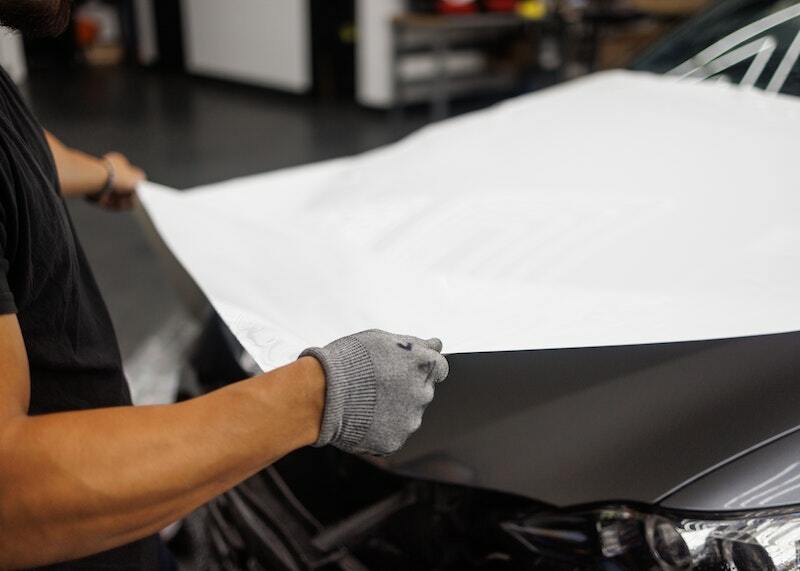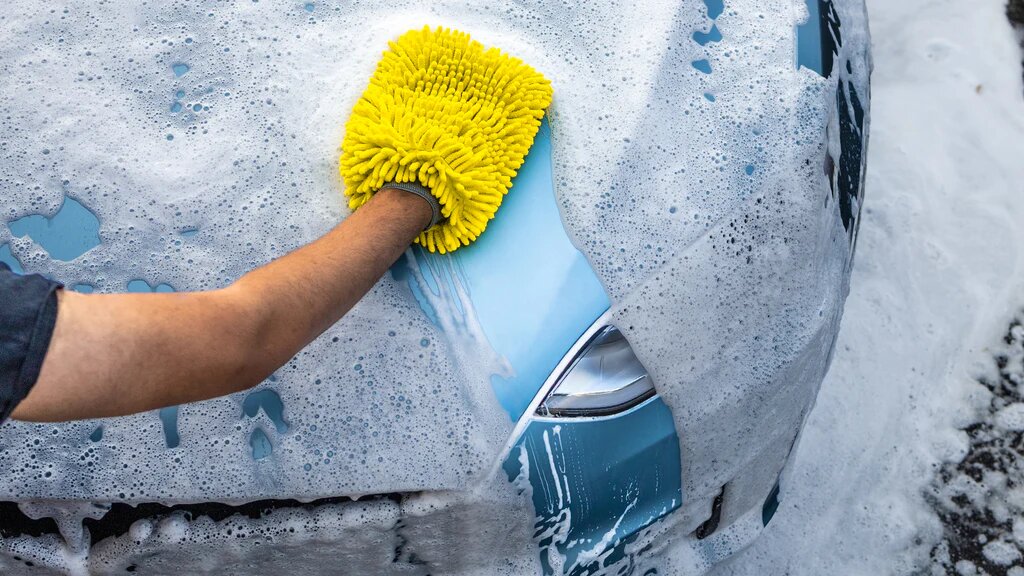Scratches on cars or car scuffs are amongst the worst things that make your car look old and uncared for. These marks and scratches may occur from knocks, scrapes or even day to day use. Fortunately, such a situation can be solved by using vinyl wrap technology to protect the car’s paint and give it a new look. In this blog, let me tell you how vinyl wraps work, the advantages it brings and why you should consider it for car protection.
Types of Vinyl Wraps:
When choosing a vinyl wrap for your car, you’ll come across two main types: matte and glossy finishes.
- Matte Finishes: These make your car look elegant but no shine. It is preferred among individuals who wish to bring a new and innovative look to their cars.
- Glossy Finishes: Glossy wraps provide a shiny and reflective surface finish that is quite close to the actual car paint but with added layer of protection.
They also come with different design and color options, so one can choose what he or she desires for his or her car. Whether you want to have a bright color or a sleek design, automotive customization through vinyl wraps can be done without any restriction due to the number of options.

How Vinyl Wraps Protect Against Scuffs:
It is important to note that one of the greatest benefits that one can enjoy through the use of vinyl wraps is that your car will be shielded from scuffs. Vinyl wraps are also long lasting and are like a cover that can prevent small damages to the paint of your car.
Some vinyl wraps also come with a self-healing feature which allows them to correct small scratch incidents on their own. It is therefore ideal for the use as a coating for long-term paint protection. The wraps also have added benefits of not being damaged by such things as dirt, dust and even UV radiation making your car look as good as new for a long time.
Installation Process:
Installing a vinyl wrap can be done in two ways: either by a professional or as a DIY car project.
Steps involved in applying a vinyl wrap:
- Clean the Car: It is important to notice here that the car must not have any dust or grime left on it.
- Measure and Cut the Wrap: Take measurements of those parts of the car that will be covered by the wrap and take the appropriate measurements of the vinyl appropriately.
- Apply the Wrap: Beginning at the top or the bottom, use the squeegee to apply pressure on the coverings and wrinkle-free air space.
- Trim and Finish: After the wrap has well been applied over the wire, cutting off the extra part and warming slightly will help it adhere properly.
Expert installation is recommended but the wrap can be installed on your own if one has time and patience the end product will be smooth and sturdy. It is far more challenging to accomplish this during a DIY installation, which is why hiring a professional installer is preferable.
Maintenance and Care:
So, maintenance of a vinyl wrap is really not a big deal. To keep it looking as fresh as when you got it, cleaning is done on a regular basis. Here are some tips for vinyl wrap maintenance:
- Wash with Soap and Water: Avoid using harsh chemicals. It is advisable to avoid using chemicals to clean the wrap since mild soap and water suffice.
- Avoid Abrasive Materials: Be very careful not to rub the material as it can damage the wrap, instead use a soft sponge or cloth.
- Addressing Minor Damage: Usually, minor scratches can be easily remedied since several vinyl wraps are created to “self-heal”. For even bigger damage, they can take the wrap to a professional to get it fixed up.
In general, compared to the majority of car detailing processes, vinyl wraps are relatively easy to maintain. This means a little effort is needed if care is to be taken so as to make sure that the wrap remains in good condition.

Cost and Benefits:
Vinyl wraps are quite affordable when it comes to car protection. Comparing it to other techniques such as repainting or applying a ceramic coat, for instance, most people will always find vinyl installation cheap. A few dollars will be charged based on the size of your car, and the best solution is to decide whether to install it yourself or hire a professional to do the job.
- Cost of Vinyl Wrap: Vehicle wrapping in general falls between £500 and £2000 for full car wraps depending on the type of vinyl and the style applied.
- Cost of Repainting: However, a complete paint job can take a lot more, often starting around £2,000 and going upwards.
Vinyl wraps offer several long-term benefits, and for this reason, they should be considered. Not only do they safeguard your car against day-to-day usage but they give you an opportunity to personalize your car without necessarily altering it. Furthermore, if you ever feel like you want to upgrade your car’s appearance, then all you need to do is to peel off the wrap.
Conclusion:
Vinyl wraps come in handy for anyone who needs a way of shielding their car from any small accidental scrapes. No matter if you decide on a glossy or matte wrap, such finishes are long-lasting, elegant and inexpensive. It makes them one of the most convenient car accessories for maintaining your car looking new and also at the same time helps in protecting the car from harm. If you are thinking of car protection, then a vinyl wrap is something you should not underestimate.
Want to give your car the best protection as well as the perfect look? Check out more vinyl wraps today and find out how your car will look like.
FAQs:
How do vinyl wraps protect my car from scuffs?
Car vinyl wraps serve as a layer that covers the car and protects the paintwork from chalking, scratching or fading.
What types of vinyl wraps are available for scuff protection?
There are matte and glossy finishes that are available for purchase; both types are good in terms of protection against scratches.
How difficult is it to install a vinyl wrap?
Applying vinyl wrap is easy and can be done by the DIY process, but for a perfect and smooth finish, it is best to let a professional do it.
How much does it cost to get a vinyl wrap installed?
The cost of the actual vinyl wrapping varies based on the car and the dealer, but it may cost from £500 to £2000.
What are the long-term benefits of using vinyl wraps?
This gives it lasting protection and ease to maintain and the best thing is that it enables clients to make changes in looks without making permanent alterations.
